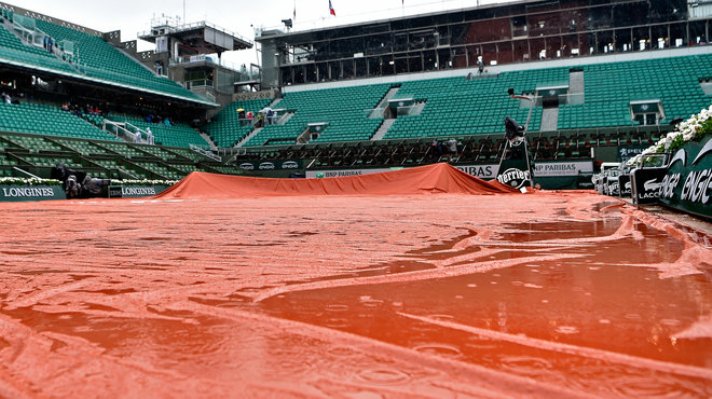
Tennis chiefs have agreed to reduce the number of seeds in the four Grand Slam tournaments from 32 to 16 as part of a raft of rule changes aimed at widening the sport’s appeal.
From 2019, Wimbledon and the Australian, French and US Opens will have only 16 seeded players in the men’s and women’s draws.
Halving the number of seeds is an attempt to make the early rounds of the majors more interesting as it will open the possibility of higher-ranked players facing off before the last 16.
There were 16 seeds at Grand Slams until after Wimbledon in 2001, when the US Open, motivated by demands from television networks, asked for 32 in the hope that stars would still be in contention in the closing rounds.
The Grand Slam Board meeting in London also approved the Australian Open‘s request to implement a 25-second “serve/shot clock” system in line with the scheme trialled at the 2017 US Open to speed up play.
The timing of the pre-match warm-up will be strictly enforced, with one minute allowed after walk-on to be ready for the pre-match toss, followed by a five minute warm-up, then one minute to be ready to start the match.
Violation of this timing may earn a player a fine of up to $20,000.
The board has also moved to tackle the problem of players withdrawing from or purposefully lacking effort in first-round matches and still getting their full prize money.
Grand Slams will now give the injured who pull out on site before their opening match 50 percent of the first-round prize money, with the other 50 percent going to the “lucky loser” who replaces them.
Players who are unable to finish their first-round match will be scrutinised and potentially fined up to the amount of their first-round prize money if they are not believed to be injured or are seen to have “performed below professional standards”.
A series of rule changes and innovations were tested at this month’s Next Gen ATP Finals in Milan, featuring the world’s top 21-and-under singles players including a shorter warm-up, the shot clock and no line judges. – Agence France-Presse































